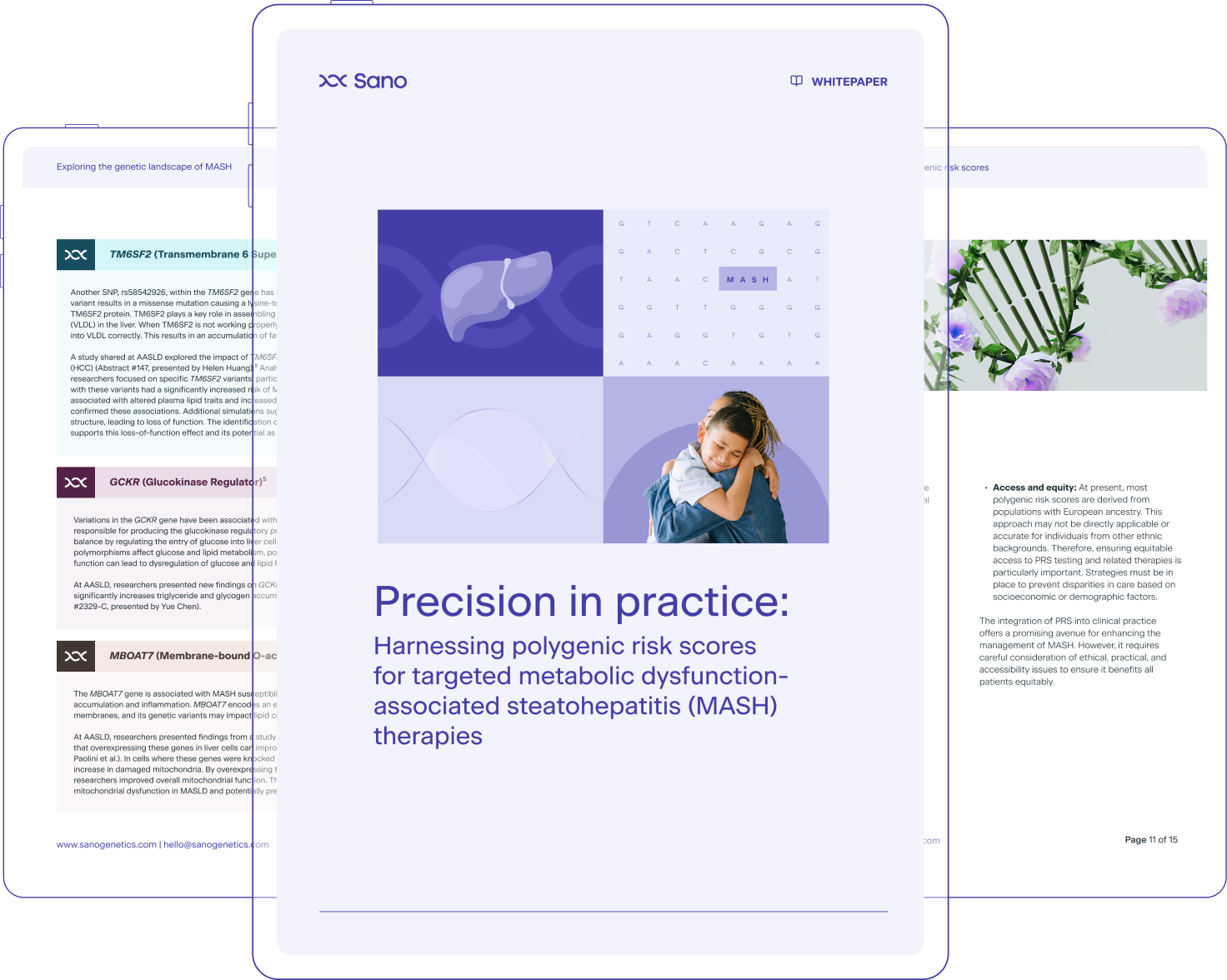A new horizon in liver disease management [whitepaper]

Metabolic dysfunction-associated steatohepatitis (MASH), previously known as nonalcoholic steatohepatitis (NASH), is a complex liver disease characterized by fat accumulation, inflammation, and fibrosis. With its global prevalence rising alongside obesity and type 2 diabetes rates, the medical community is urgently seeking innovative prediction, diagnosis, and treatment strategies.
Traditionally, MASH management has been reactive and generalized. However, the emergence of polygenic risk scores (PRS) has marked a paradigm shift towards a proactive and personalized approach. PRS aggregates multiple genetic variants to predict disease likelihood, paving the way for early prediction, precise diagnosis, and tailored treatment strategies. In our latest whitepaper, we explore:
- Genetic underpinnings of MASH: Learn the genetic landscape of MASH, highlighting key genes like PNPLA3, TM6SF2, GCKR, and MBOAT7 and their roles in the disease's pathogenesis.
- Impact of specific genetic variants: Understand the profound impact of specific genetic variants, such as the PNPLA3 gene variant rs738409 C>G, on MASH development and progression.
- PRS in predicting and managing MASH: Discover how PRS can revolutionise MASH management by enabling early identification of high-risk individuals and guiding tailored treatment strategies.
- Integration with traditional diagnostic tools: Learn about the integration of PRS with tools like the FIB-4 index for a more comprehensive assessment of MASH-related fibrosis.
- Navigating challenges and future directions: Explore the ethical, practical, and accessibility challenges in implementing PRS in MASH management, including patient consent, data privacy, and ensuring equitable access.
Download today to learn more!


